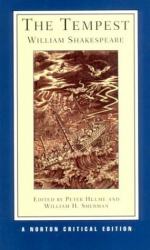|
This section contains 11,662 words (approx. 39 pages at 300 words per page) |

|
Jacquelyn Fox-Good, Illinois Institute of Technology
Most recent criticism of The Tempest has insisted upon the play's "worldliness," its status as a production of an imperial culture that was—at just the time (1611) the play was written and first performed—colonizing islands like the one Prospero inhabits and subjecting natives like Caliban. As is now quite familiar, these readings foreground the play's ideological and historical contexts, which have both "written" the play and "been written" by it. This emphasis is a crucial value of this approach, which must be seen, at least, as an interrogation of the long-dominant "idealist readings" of the play and of Prospero "as an exemplar of timeless human values," of the "profit" of language, "civilization," forgiveness, all of which finally achieve (in this humanist vision) "a harmoniously reconciled new world" (italics mine).1
"Harmony" (and related musical metaphors like "concord" and "resolution") occur frequently in...
|
This section contains 11,662 words (approx. 39 pages at 300 words per page) |

|


